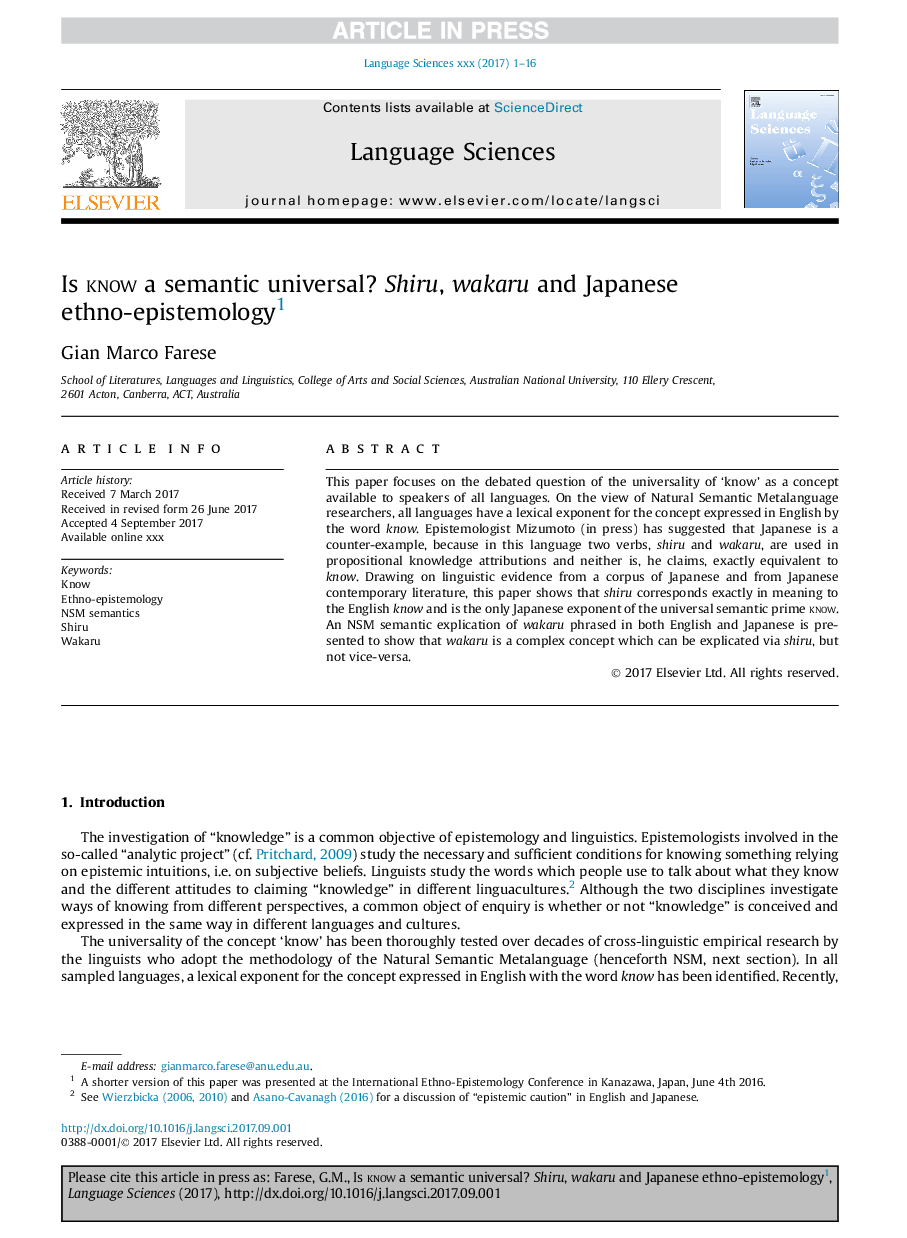| Article ID | Journal | Published Year | Pages | File Type |
|---|---|---|---|---|
| 7533820 | Language Sciences | 2018 | 16 Pages |
Abstract
This paper focuses on the debated question of the universality of 'know' as a concept available to speakers of all languages. On the view of Natural Semantic Metalanguage researchers, all languages have a lexical exponent for the concept expressed in English by the word know. Epistemologist Mizumoto (in press) has suggested that Japanese is a counter-example, because in this language two verbs, shiru and wakaru, are used in propositional knowledge attributions and neither is, he claims, exactly equivalent to know. Drawing on linguistic evidence from a corpus of Japanese and from Japanese contemporary literature, this paper shows that shiru corresponds exactly in meaning to the English know and is the only Japanese exponent of the universal semantic prime know. An NSM semantic explication of wakaru phrased in both English and Japanese is presented to show that wakaru is a complex concept which can be explicated via shiru, but not vice-versa.
Keywords
Related Topics
Social Sciences and Humanities
Arts and Humanities
Language and Linguistics
Authors
Gian Marco Farese,
